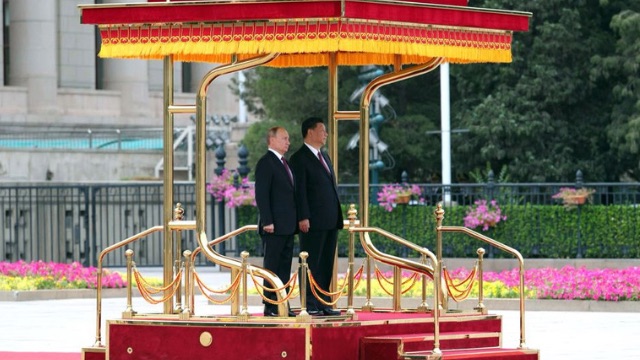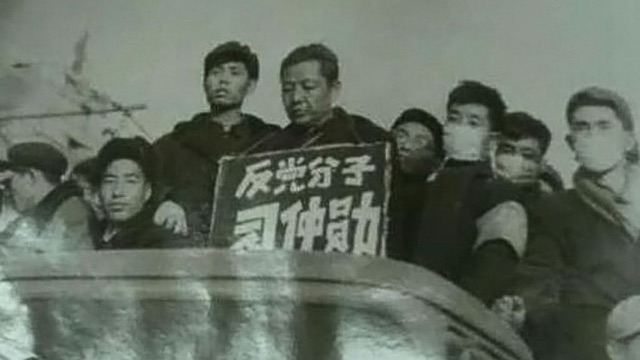Totalitarian regimes use torture. Only Russia and China publicly and proudly brag about it.
by Kok Bayraq
Bitter Winter, 04/03/2024
Subjecting criminal suspects to various inhumane tortures during interrogation has occurred in history and may still occur today, particularly in totalitarian states. Proudly reporting such tortures is rarer. Today, we only see it in Russia and China.
Russian media reported that Russian security forces cut off the ears of Moscow attack suspects during interrogation, put them in their mouths, electrocuted their genitals, and subjected them to other brutal tortures. The suspects were accused of a bloody terrorist attack, but China has applied such brutality even against non-violent prisoners, some only accused of publishing “separatist” books.
Three years ago, Chinese media themselves reported that Sattar Sawut, former head of the Uyghur Regional Education Department, and Shirzat Bawudun, former deputy secretary of the local Regional Political and Legal Affairs Committee, had appeared crying with regret and asking for forgiveness for their “criminal” acts of separatism. They were in their 60s or older. It was obvious they had been tortured and Chinese official media proudly offered to their readers images clearly hinting at it.
Adopting a terrorist method against terrorists, as Russia did, makes state official descend to the level of the terrorists. They can no longer claim a moral high ground. By torturing non-violent prisoners accused of“separatism,” China in turn was sowing the seeds of terrorism itself.
Yet, torturing in secret is one matter and publicly reporting torture is something different. With their public display of torture, we can assume that Russian state security forces tried to calm the anger and console the relatives of those who died in the attack. They also sent a threatening signal to their domestic and international enemies and wanted to show a though and uncompromising attitude. China, with this type of reports, wants to publicly humiliate the “separatist” leaders, leave the Uyghurs without heroes, and intimidate the Uyghur independence movement.
According to human rights organizations, both Putin and Xi Jinping have turned glorifying torture into a strategy. But did they achieve their goals?
In the immediate aftermath of the Moscow attack, in the international public there was sympathy towards the victims and unanimous indignation against the perpetrators. However, when reports of torture surfaced, many wondered whether state terrorism might not be a deeper problem in Russia than terrorism from abroad. Human rights organizations published reports criticizing torture and the way the Moscow attack was handled by the police.
Xi Jinping succeeded in becoming the first CCP leader to put a genocidal hat on China.

By violating the rights of suspects, no matter of what crimes they are accused, and reporting on it, both states demonstrated that they are prepared to ignore both international law and their own laws. Who is responsible for this inhuman brutality? Is this the fault of one person or is it an institutional problem? As some media recently reported, Russian state media employees were explicitly instructed to publish footage of the Crocus City Hall terrorist suspects being tortured as a “prevention measure.”
In the Putin regime, which is entering into its twenty-fifth year of power, it is clear that no individual or institution can take independent decisions and measures on such a sensitive issue. Moreover, the deaths of Navalny and Prigozhin and thousands of other events show that today Russia means Putin and Putin means Russia. So, it is clear that the decision of glorifying torture was personally taken by Putin.
In the Chinese regime, leaked documents show that there is a single hand ultimately governing every act of the Uyghur genocide: Xi Jinping’s iron fist. For a head of state, what does it mean to proudly report torture? It can be the most cynical of the strategies. Or it can even suggest mental instability.
Perceiving the U.S. confidential information that ISIS might soon strike in Moscow as a provocation and ridiculously holding Ukraine responsible for the attack indicate both cynicism and mental imbalance.
By suggesting that Islam is a mental illness that needs to be cured, Xi Jinping, before Putin, had attracted international attention on his own mental problems. I believe that the question of possible mental health issues affecting both Putin and Xi Jinping should be seriously posed. For Putin, root causes may be found in his frustration for the inability of protecting Russia from terrorism or winning the Ukrainian wars in a few weeks as he had promised or on the contrary in his hubris after “victories” in Syria and in 2014 with the occupation of Crimea in Ukraine. Xi Jinping may still be haunted by the traumatic memories of the Cultural Revolution, when Chairman Mao, whom he otherwise venerated, had his father tortured.

The publicity of torture may both make existing genocidal situations worse and set a bad example others may imitate. For example, the lives of more than three million Uyghurs who have been held in camps and prisons for six years, can be dragged into even more frightening stages. Or one day Saudi Arabia may proudly admit to the world and glorify the fact that they had dismembered journalist Jamal Khashoggiin their consulate in Istanbul.
All this is, of course, speculation. We cannot be inside the minds of Xi Jinping or Putin. Perhaps there is a method in their madness. However, that two of the most powerful world leaders have decided to publicly glorify torture raises serious problems for the whole world. If we cannot count on their mental stability, we cannot predict their future actions based on a paradigm of rationality. From the Baltic States to Taiwan, the spark that will ignite a global fire can be lit at any time.

